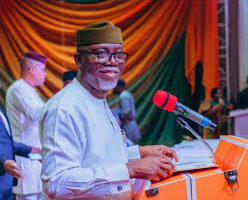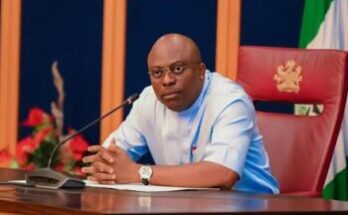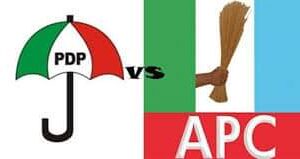Back from the yuletide break last Tuesday, January 17, the House of Representatives commenced regular plenary amidst concerns that a lot that needed to be done may not be attended to for want of time, as the general elections beckons. JOSHUA EGBODO points out some of the pending legislative interventions before the House.
Back in session
At resumption last week, Speaker of the House, Femi Gbajabiamila reminded his colleagues that a lot were yet before the House, even in the face of the limited time available to it. It is sacrosanct that the House will end its tenure sometime in June this year, and with activities around the general elections at their peak as the days draw closer, analysts have concluded that not much would be achieved before the polls, more that many members with tickets in their bids to return would be more concerned with their campaigns.
However, Gbajabiamila in his welcome address last Tuesday, charged his colleagues on the task ahead. “Let us begin this new year with a renewed commitment to legislative action that brings us closer to achieving our highest aspirations for our nation.
“Let us resume with renewed determination to achieve better oversight of government spending priorities through a collaborative effort with the executive arm of government and civil society. And we remain dedicated to the lofty yet clear ambitions we articulated in our legislative agenda when we resumed in the 9th Assembly.
“This year, it is imperative that we focus our efforts on completing the tasks we have already initiated and closing out the assignments on which our legacy in this 9th House will be assessed. Several bills still in the legislative process need to be actioned as a matter of urgency, as these bills propose significant improvements across different sectors of our national life.
“Some of these bills are still in committee, while others are awaiting concurrence in the Senate. We will see to it that we conclude work on these bills so that they can be presented to Mr president during the life of this administration”, he stated.
On election expectations, security threats
One major subject of debate across all spheres of the nation’s populace today has been the fast approaching general elections, and so also is the worrisome rise in security threats to the process. There have been reported attacks on state institutions; security formations and offices of the electoral umpire, the Independent National Electoral Commission (INEC), both of which are critical to success of the coming polls. Politicians have also not been spared.
Expressing his opinion, Speaker Gbajabiamila therefore said that “as we approach the general elections, there has been a marked increase in incidents of insecurity and vicious attacks on political actors in parts of the country. We must unite to ensure this dangerous trend does not lead to circumstances that threaten the forthcoming elections.
“The quality of the political conversations in society, particularly, in the lead-up to elections, is a determining factor in the electoral outcomes and the quality of governance that will result therefrom. When political discourse seeks to unite the people behind an agenda of shared prosperity, social development, and respect for the humanity of persons, governance will also reflect these priorities.
“The security and welfare of the people shall be the primary purpose of government’. With these words, the constitution obligates all of us who swear to serve in government to do everything to protect the lives and property of all citizens and promote their well-being above all else. This obligation is central to the governing contract between the government and the citizenry.
“As leaders in our various communities and constituencies, we must adopt a politics of accommodation and brotherhood. And we must ensure that no insecurity threatening our country’s peace can be attributed to our actions or utterances. This is our constitutional obligation and a moral duty from which we must not deviate”.
Beyond the elections
Before the countdown to the fast approaching elections, a lot were done collectively by the two chambers of the National Assembly, specific in the assertion of pundits was passage of the new Electoral Act, which was believed to be a far reaching improvement on the 2010 version of the law.
However, there have been legislative instruments which many felt should be conclusively addressed before the current House winds down.
CBN’s Ways and Means, supplementary budget
Prior to signing the N21.82 trillion 2023 Appropriation Bill, now an Act of the parliament, President Muhammadu Buhari solicited from the National Assembly, the scrutiny and restructuring of the Central Bank’s Ways and Means scheme. It is a scheme through which the CBN offer loan advances to the Federal Government with applicable interest rates. There was also a supplementary appropriation request by the President, to the 2023 budget.
Constitution Review
A worrisome development to followers of activities of the apex parliament of Nigeria was its latest attempt at further altering the country’s constitution, which had lingered for longer than necessary to conclude. The National Assembly raised the alarm that states were frustrating the effort, to which about One billion naira had been committed.
The Senate and House of Representatives voted on the 68 recommended clauses as separately presented by their respective Ad-hoc committees on the review of the 1999 Constitution, after which 44 of the recommendations enjoyed the required two-third majority ‘yes’ votes, and were adopted. As constitutionally required, the same were subsequently transmitted to the state Houses of Assembly to get concurrence.
It is expected that at least 24 state parliaments must vote in approval of each of the clauses for it to scale through as stipulated in sections 9(2) and (3) of the 1999 constitution (as amended).
Reports however showed that as at October, 2022, only 11 out of the 36 states of the federation have voted on the constitution amendment bills’ and these include Abia, Akwa Ibom, Anambra, Delta, Edo, Kaduna, Katsina, Kogi, Lagos, Ogun and Osun. There were reports that the remaining 25 states yet to consider the bills have threatened to take no action on the bills unless four specific and additional amendments are considered and passed by the National Assembly.
Bills in contention
The affected states had insisted on the inclusion of the bills to establish State Police; State Judicial Council; Streamline the procedure for removing Presiding Officers of State Houses of Assembly and institutionalize Legislative Bureaucracy in the Constitution. Those demands were contained in a letter from the Conference of Speakers of state Houses of Assembly, which the National Assembly Joint Committee on Constitutional Review received last year
The demand had put a clog in the wheels of progress of the exercise, with governors of those states being accused as the brains behind the move. In fact, at the Distinguished Legislative Lecture of 2022, organised by the National Institute for Legislative and Democratic Studies (NILDS), Speaker Femi Gbajabiamila begged the Kaduna State Governor, Nasir el-Rufai to persuade his colleagues into seeing that the state parliaments vote and return the bills, but nothing has been heard since then.
The Water Resources Bill
One of the most controversial bill pending before the House of Representatives had been the Water Resources Bill, which over the years had been on and off the floor. The Bill was once again introduced at the first reading stage on June 29, 2022 in the House of Representatives, with concerned lawmakers questioning its reintroduction.
The bill, which was also introduced and kicked against during the 8th assembly of the House, following public outcry as many Nigerians perceived that it was a back-door reintroduction of the controversial Rural Grazing Area (RUGA). The proposal to empower the Federal Government to control all water resources in the country such as rivers, streams, lakes and underground water in all parts of the country, was sternly opposed.
As many lawmakers reminded the Speaker that the same was a subject of controversy in the House the year earlier, no mention of the bill was made since then, but followers of issues in the House were not sure if the bill had been permanently rested, or may be mentioned for progress as the House continue sitting.
Committee probes
The House of Representatives, through Ad hoc and Standing Committees launched investigations into several alleged infractions, which many agree were within its constitutional mandates. What many questioned however, was the manner in which many of them end, even with many more never conclusive. Months after investigative hearings, reports never come from the committees involved.
Some major probes by the House in recent times include investigation into receipt and application of ecological fund, abandoned government property, duplication of functions by Ministries, Departments and Agencies (MDAs), state of petroleum refineries, fuel subsidy, daily consumption of Premium Motor Spirit (PMS), importation of substandard fuel, investigation into N600 billion extra- budgetary expenditure by MDAs, incessant collapse of the national grid, billion dollar debt owed the government by oil and gas companies and more.
How much is achievable?
With politicking activities for the general elections involving the members, it was of concern that not much will be done. Even after the polls, the next move would be the jostle for who becomes presiding officers of the next assembly.
Though the speaker sounded a note of caution that “it is imperative that we focus our efforts on completing the tasks we have already initiated and closing out the assignments on which our legacy in this 9th House will be assessed….”, the pessimism over any meaningful progress on the minds of many still remain high.




